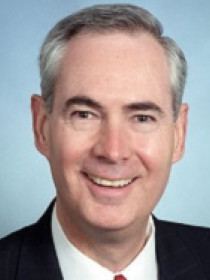
Theodore S. Arrington
Professor of Political Science, Emeritus, University of North Carolina at Charlotte
Chapter Member: New Mexico SSN
Areas of Expertise:
Connect with Theodore
About Theodore
Theodore (Ted) Arrington has been an expert witness or advisor in more than 50 voting rights and redistricting cases. he has drawn districts for the Federal Courts and the Department of Justice as well as various litigants including political parties and civil rights organizations.
Contributions
How Fair Rules Can be Designed for Photo Identification at the Ballot Box
Basic Facts Brief,
In the News
"Russia, Trump Campaign Colluded Legally, Just Like PACs do Regularly," Theodore S. Arrington, Albuquerque Journal, April 2, 2019.
Theodore S. Arrington quoted on the discriminatory intent behind redistricting by Enrique Rangel, "Court Arguments Begin for Texas Redistricting Fight" Amarillo Globe-News, July 14, 2014.
Theodore S. Arrington quoted on the disparity between votes and seats on U.S. politics by Sean Trende, "Gerrymandering Isn't to Blame for D.C. Impasse" Real Clear Politics, October 11, 2013.
Theodore S. Arrington quoted on congressional redistricting by Gary Martin, "Sheila Jackson Lee Testifies that Texas Redistricting Plan is ‘An Outrage’" Houston Chronicle, January 23, 2012.
Theodore S. Arrington quoted on the voter impact of redistricting plans by Robert Wilonsky, "DoJ: Texas's New Election Maps Seek to Deny Hispanics Voting Rights, Especially in DFW" Dallas Observer, October 27, 2011.
Publications
"The Republicans’ Built-In House Advantage" Sabato’s Crystal Ball 38, no. 3 (2013).
Examines the seats/votes relationship for the U.S. House of Representatives on the national level.
"Affirmative Districting and Four Decades of Redistricting: The Seats/Votes Relationship 1972-2008" Politics and Policy 38, no. 2 (2010): 223-253.
Summarizes the seats/votes relationship for the U.S. House of Representatives in the time period since the one-person-one-vote decisions of the U.S. Supreme Court.
"Redistricting in the U.S.: A Review of Scholarship and Plan for Future Research" The Forum 8, no. 2 (2010).
Describes what social scientists know about the redistricting process as of the start of redistricting following the 2010 Census.
"Party Registration Choices as a Function of the Geographic Distribution of Partisanship: A Model of ‘Hidden Partisanship’ and an Illustrative Test" (with ). Political Geography 18, no. 2 18, no. 2 (1999): 173-185.
Offers some contexts in which registration may be especially misleading as a predictor of partisan voting.
"When Money Doesn’t Matter: Campaign Spending for Minor Statewide Judicial and Executive Offices in North Carolina" The Justice System Journal 18, no. 3 (1996): 257-266.
Argues that campaign spending for minor offices may be irrelevant. Discusses how partisanship overwhelms personal differences between candidates and the amount of money that candidates for local office can raise is insufficient to significantly move the vote away from preexisting partisanship.
"Outreach Programs and Voter Registration in North Carolina" (with ). State and Local Government Review 24, no. 3 (113): 1992.
Examines the effectiveness of local election officials in encouraging voter registration.